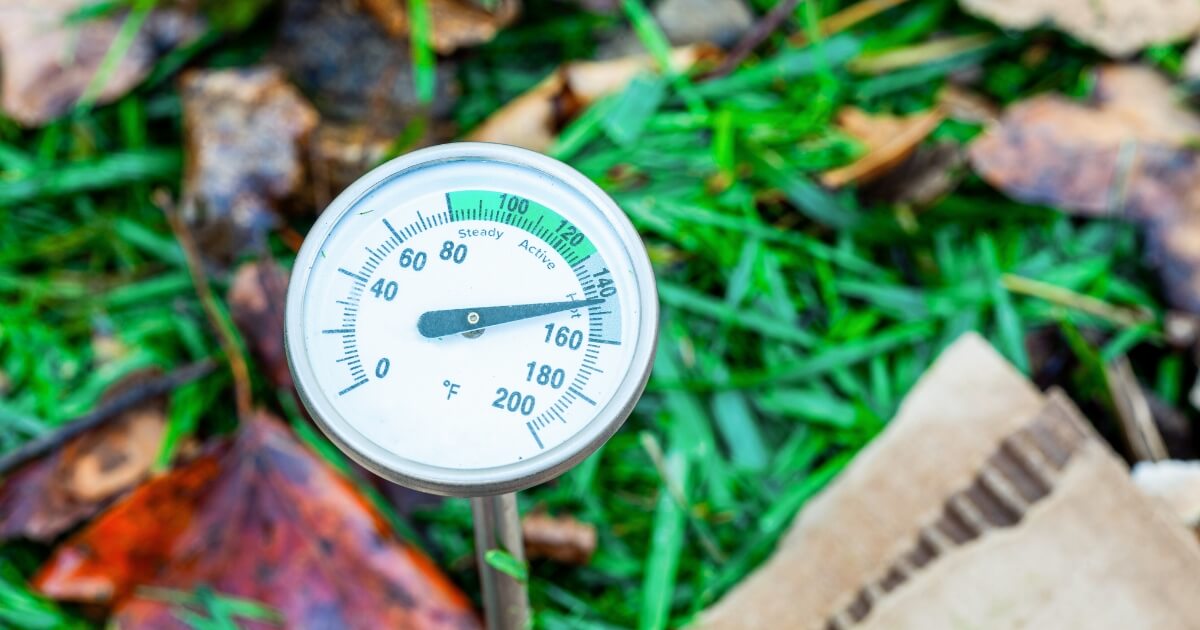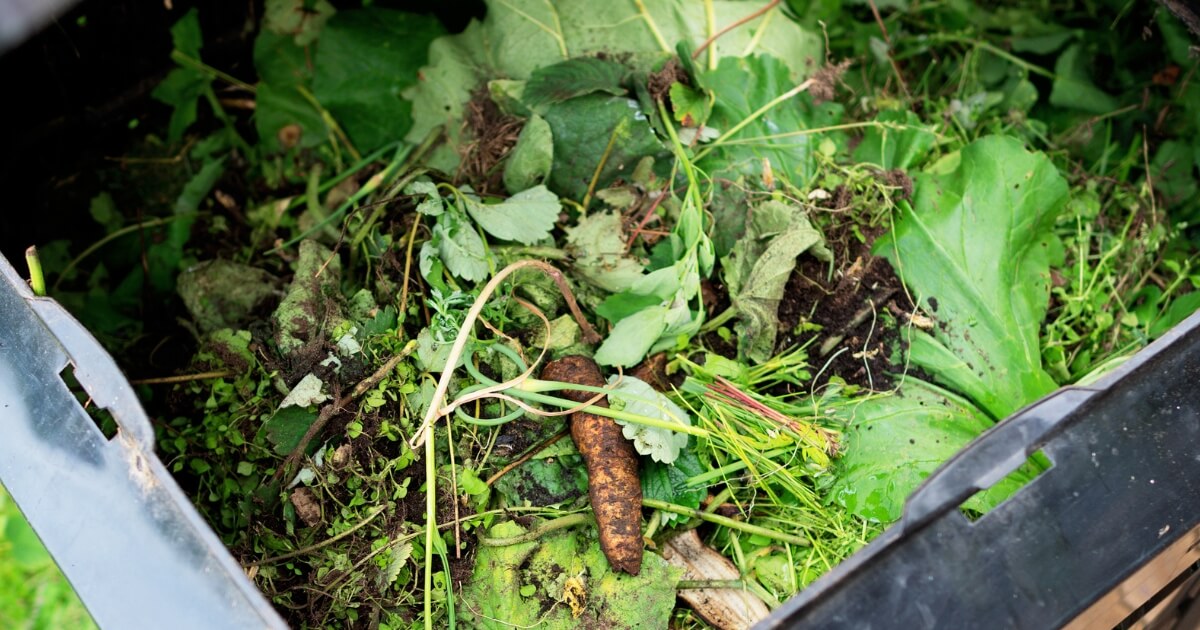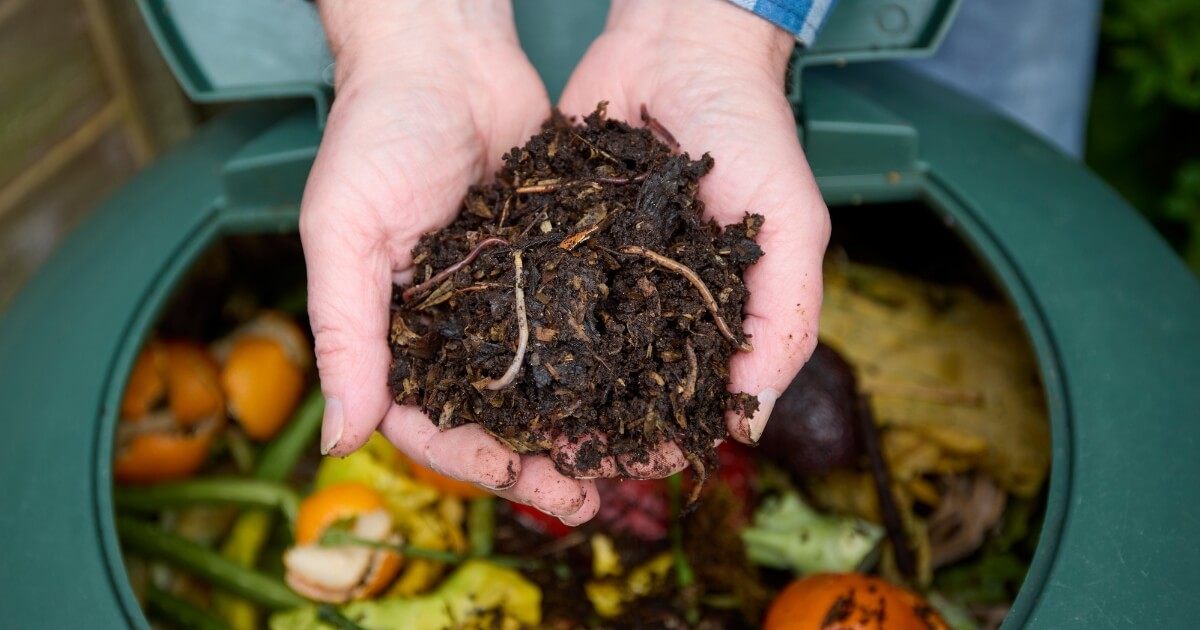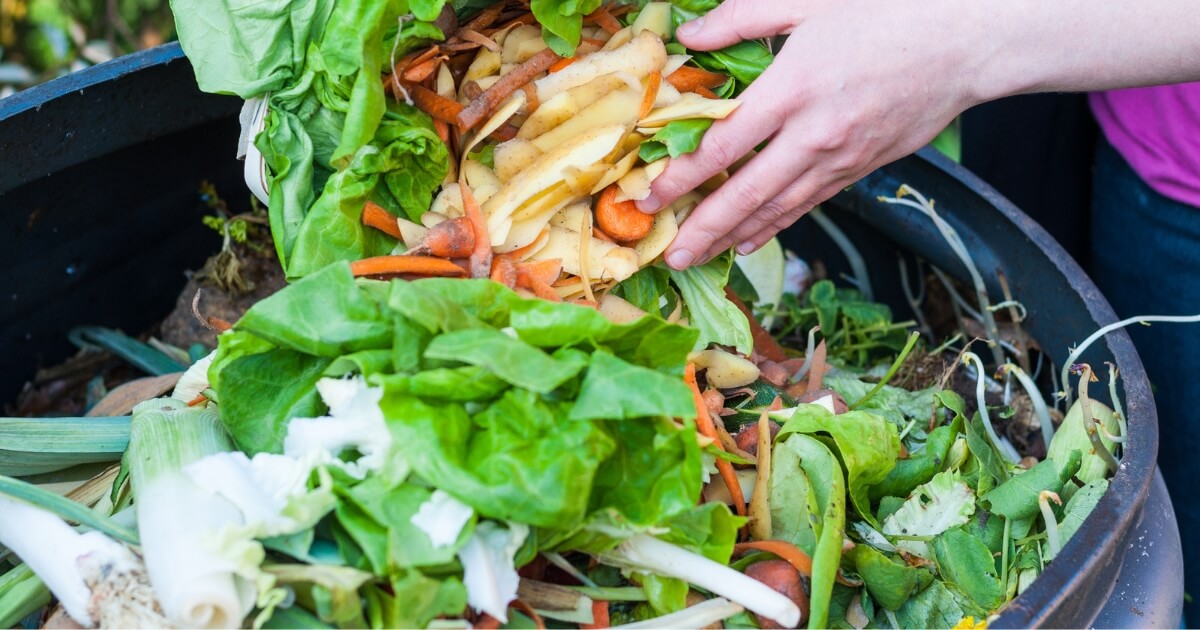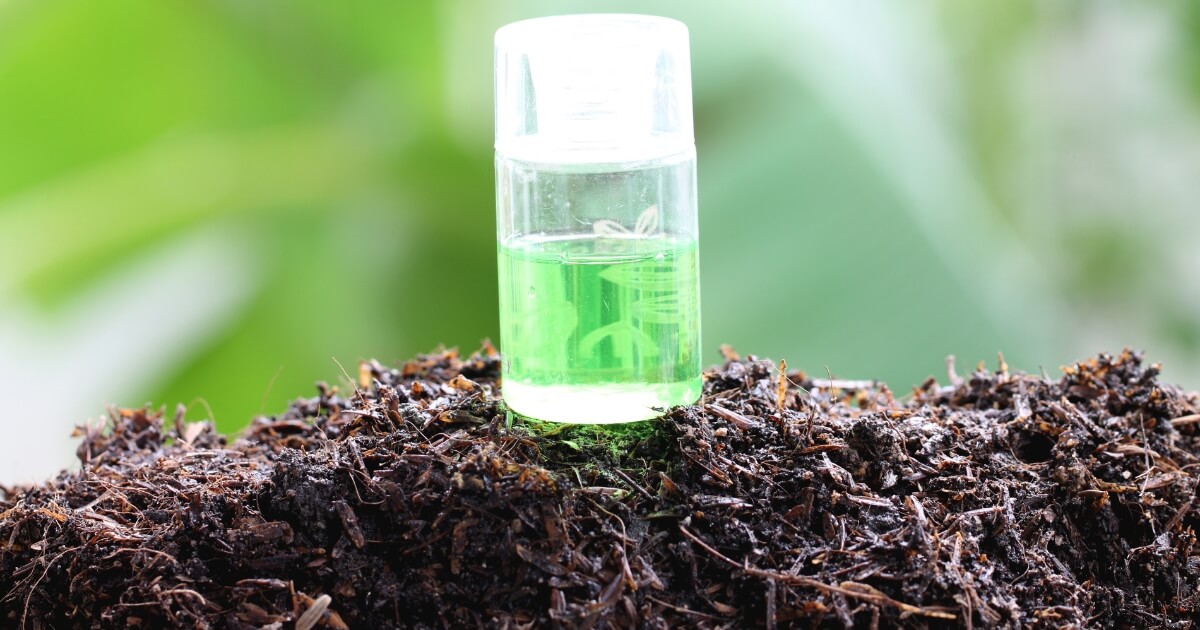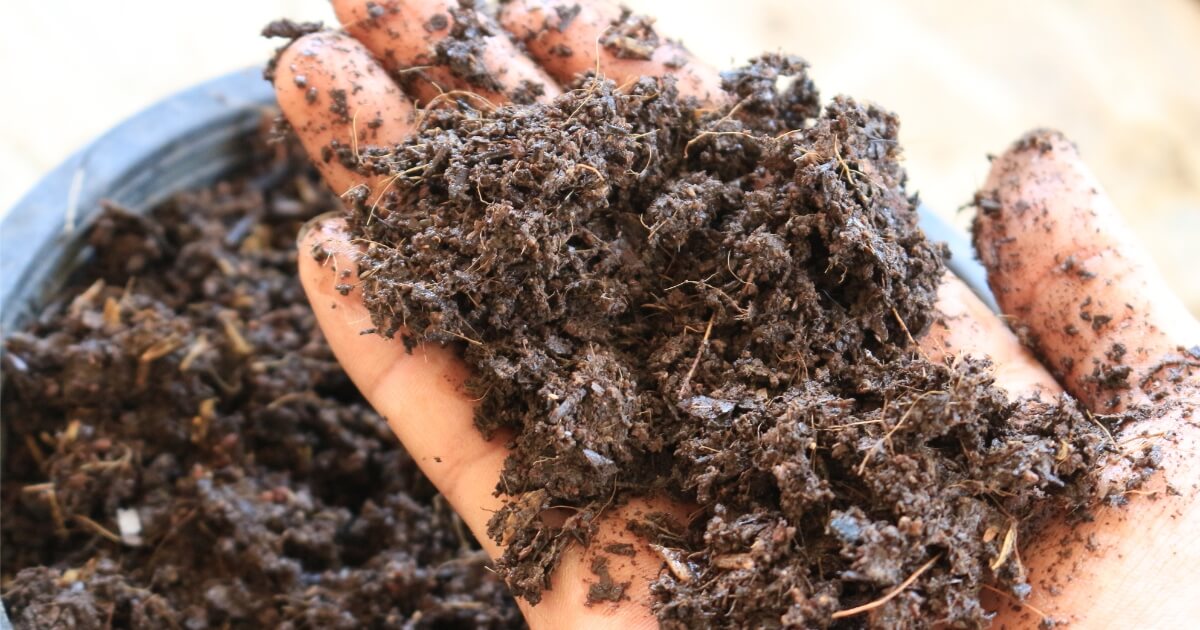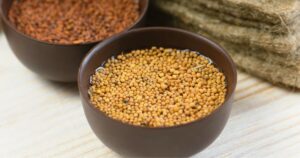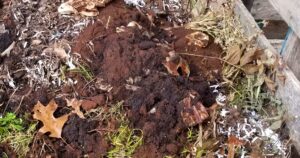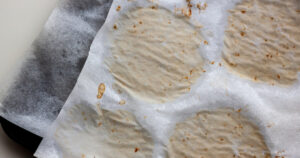Do you use a fireplace, wood stove, fire pit, or charcoal grill, and want to know if the ashes left behind are good for compost?
The answer is yes, depending on where the ashes come from and how much you use.
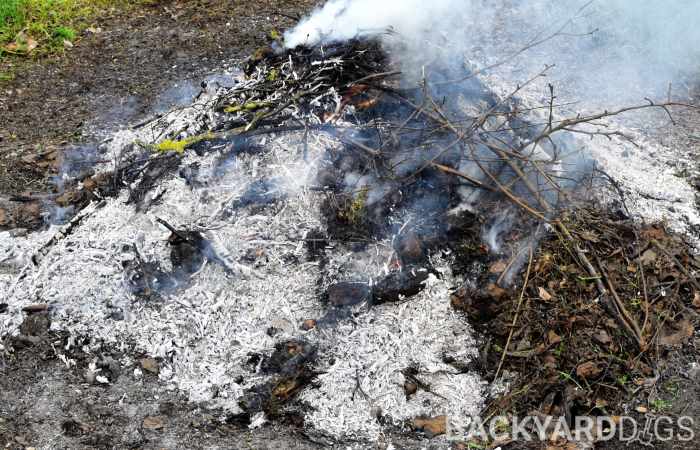
I put together this guide to quickly explain whether wood or charcoal ashes are good for compost and how much is safe to add to your composter.
Recycling ashes instead of tossing them into the garbage can be beneficial when you know the right way to compost them, so keep reading to learn all about it!
Is Wood Ash Good For Compost?
The majority of ashes are remnants of hardwood burned in a fireplace, outdoor fire pit, or a wood stove. Here are pros and cons to using wood ash in compost:
Pros
- Adds valuable nutrients
- Reduces waste going to landfills
- Raises soil pH
- Ash compost may deter slugs and snails
- Improves overall soil texture
Wood ash contributes potassium, calcium, and lime to compost without adding nitrogen, which is beneficial to plants when you spread the compost in the garden.
Related | Eggshells In Compost
Ash from hardwoods contains potash beneficial for plant root growth and stable cell structures so they can better resist disease.
A compost batch you make with a high amount of ash can help raise the pH of acidic soil where it’s necessary to facilitate the health of certain species of plants.
Cons
- Too many ashes can raise pH levels to harmful levels
- Ashes may inhibit nutrient absorption in some plants causing wilt
- Requires adding extra ingredients to the compost to offset the ashes
- You should never use ash from treated lumber due to high chemical content
Knowing how wood ash affects compost allows you to incorporate it at levels that suit your particular needs.
A neat tip is that you can create a compost batch using hefty amounts of ash and use it as a natural herbicide to kill off weeds like thistle or kudzu that can’t survive in extreme alkaline soil.
You can directly apply wood ash to the soil for various reasons. For more information on how to spread them in a safe manner, check out this article from Oregon State University.
Charcoal Ash In Compost
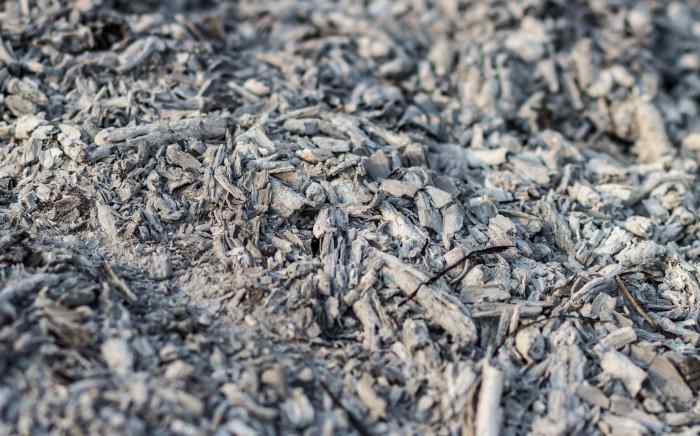
Charcoal begins life as wood which is then heated without access to air so it can’t burn. The process leaves the carbon behind while driving off most of the other chemicals that naturally occur in the wood.
You can sprinkle natural charcoal ashes into your compost with little concern since it is, by nature, a “brown” ingredient.
Charcoal ash in compost can help with drainage and help loosen soil compaction, but adds little if any, nutritional boost.
However, you need to be aware that many brands of charcoal made for grills add chemicals to the briquettes to keep their shape and to help them start burning.
Trace amounts of these chemicals can be left behind in the compost, which in turn creates the chance it could harm plant growth.
Charcoal is not wood ash that has been formed into a briquette. Wood ash is the light, flaky remnants left behind after wood burns down.
Charcoal is human-made from wood to create a material that burns at high heat while producing little smoke.
Fireplace Ash In Compost
Ashes and the chunks of charred wood that you clean from the fireplace make a nice addition to compost.
The material is especially helpful since it can work to balance out the acidity that forms when food scraps begin to decompose.
The ashes and small chunks of charred wood help the compost maintain air pockets that increase airflow, which the compost needs to keep the microbes happy and retain heat within the pile.
Most people burn hardwoods in their fireplaces, which contribute beneficial elements like iron, manganese, calcium, boron, potassium, copper, and zinc to the finished compost.
These minerals boost the value of your compost since plants readily absorb them into their root systems.
Fireplace ashes also help hold onto nutrients in the compost, so they don’t leech out during rains.
Just like wood and charcoal ash, fireplace ash can overwhelm a compost pile if you add too much at once. Never dump a bucket full of ash onto your pile and walk away.
Use the tips in the next section to know the correct amount of ashes you should add to your compost to keep everything in balance and proper working order.
How Much Ash Should I Add To Compost?
Ash is considered a brown compost ingredient because it is carbon-based. How much you add depends on what you are trying to achieve.
- You can mix in a small shovelful of ash to a compost pile to balance any green nitrogen-producing components such as vegetable scraps or grass clippings.
- Add a significant amount of ash when the amount of food scrap additions will cause a considerable rise in acidity as it decomposes.
The issue is that if you go overboard and raise the pH level over eight, the compost action will slow down since the microbes won’t be able to function as well, and the pile loses nitrogen through off-gassing.
The key to successful additions of ash to your compost is to add a layer of brown material, then sprinkle the ash evenly to distribute it. After that, turn the entire mixture into your green ingredients.
In Summary
Are ashes good for compost?
Yes! So take advantage of the free material left over after burning wood in your fireplace, wood stove, or outdoor fire pit. Gather up those ashes and add them in moderation to your compost bin or pile.
Composting wood ashes is an environmentally-friendly way to reduce waste heading to the landfill while increasing the nutrient blend of your compost.
I hope this guide clarifies which type of ashes you can safely add to compost or even directly to the soil, so your plants can thrive!
